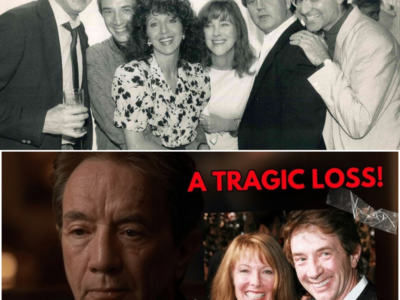The Silence of the Lambs (1991), directed by Jonathan Demme, remains one of the most iconic psychological thrillers in cinematic history, sweeping all five major Academy Awards—Best Picture, Best Director, Best Actor, Best Actress, and Best Adapted Screenplay. The film’s success is often attributed to its chilling narrative, adapted from Thomas Harris’s 1988 novel, and the electrifying performances of its leads: Jodie Foster as FBI trainee Clarice Starling and Anthony Hopkins as the cannibalistic psychiatrist Dr. Hannibal Lecter. Among the many memorable moments in the film, one stands out for its spontaneity and impact: Anthony Hopkins’s improvised mockery of Clarice’s accent during their first meeting. This unscripted moment not only shaped the dynamic between the characters but also added a layer of authenticity to Foster’s performance, contributing to the film’s enduring legacy. This article explores the origins of this improvisation, its effect on the film, and how it became a pivotal moment in cinematic history as of April 2025.
The Scene That Defined a Dynamic
The moment occurs early in The Silence of the Lambs, during Clarice Starling’s first encounter with Dr. Hannibal Lecter in his cell at the Baltimore State Hospital for the Criminally Insane. Clarice, a young FBI trainee, is tasked with enlisting Lecter’s help to catch serial killer “Buffalo Bill.” As she approaches Lecter, he sizes her up with a chilling monologue, dissecting her background with surgical precision. “You’re so ambitious, aren’t you? You know what you look like to me, with your good bag and your cheap shoes? You look like a rube. A well-scrubbed, hustling rube, with a little taste… And that accent you’ve tried so desperately to shed—pure West Virginia,” Lecter says, his voice dripping with condescension.
What makes this scene particularly striking is that Hopkins’s mockery of Clarice’s West Virginia accent was not in the script. Jodie Foster revealed in a MasterClass session that this line was entirely improvised by Hopkins. “There is a moment in The Silence of the Lambs where Lecter makes fun of Clarice’s accent, and that was not rehearsed. That was just something Anthony Hopkins came up with,” Foster recalled. She went on to explain how the improvisation caught her off guard: “I was an actress learning how to speak in a West Virginia accent, and when I heard him make fun of my accent, it really made me mad.” Foster’s genuine reaction—visible in Clarice’s horrified expression—was one of raw vulnerability, as she felt personally attacked by Hopkins’s taunt.
This improvisation was more than just a playful ad-lib; it was a deliberate choice by Hopkins to tap into Foster’s insecurities. As noted by Collider, Hopkins, much like Lecter, was “mining for insecurities in his collaborator’s psyche in order to gain the higher status and establish control.” By mocking Foster’s accent, Hopkins elicited a real emotional response, which translated into a more authentic performance from Foster. She later thanked Hopkins for this, recognizing that his improvisation brought out a level of honesty in her portrayal of Clarice that might not have been achieved otherwise.

Clarice’s Accent: A Window into Her Character
Clarice Starling’s accent is a crucial element of her character in The Silence of the Lambs. As Sentence First points out, the film emphasizes Clarice’s journey from a rural, working-class background in West Virginia to the sophisticated, male-dominated world of the FBI. Her accent, which she has “tried so desperately to shed,” is a symbol of her origins and the socioeconomic barriers she seeks to overcome. Lecter’s mockery of her accent is both playful and cruel, designed to exploit her insecurities and assert his psychological dominance. In the context of the story, it underscores Lecter’s ability to see through Clarice’s carefully constructed facade, exposing her vulnerabilities with surgical precision.
For Foster, mastering the West Virginia accent was a significant part of her preparation for the role. She worked with a dialect coach to ensure authenticity, knowing that Clarice’s background was integral to her character arc. However, Hopkins’s improvisation struck a deeply personal chord. “It upset me so much. It struck a really bad chord in me,” Foster admitted in an interview. This moment of vulnerability mirrored Clarice’s own experience in the scene, as she is forced to confront her insecurities while maintaining her composure in the face of Lecter’s psychological assault.
The authenticity of Foster’s reaction added a layer of depth to the scene, making it one of the most memorable in the film. As Vanity Fair notes, the chemistry between Foster and Hopkins—particularly in their four shared scenes—defined The Silence of the Lambs. Their dynamic, described as a “complicated chess match of words,” captivated audiences and critics alike, contributing to the film’s critical and commercial success. The movie grossed $272.7 million worldwide on a $19 million budget, becoming the fifth-highest-grossing film of 1991, and its cultural impact endures more than three decades later.
Hopkins’s Approach: Crafting a Terrifying Yet Charismatic Lecter
Anthony Hopkins’s portrayal of Hannibal Lecter is widely regarded as one of the greatest performances in film history, earning him a Best Actor Oscar despite appearing on screen for just over 16 minutes. His preparation for the role was meticulous, involving extensive research into the psychology of serial killers. According to IMDb, Hopkins studied files of real-life murderers, visited prisons, and attended court hearings to understand the mindset of a killer like Lecter. He also drew inspiration from an unlikely source: his fear of dentists. Hopkins convinced director Jonathan Demme and costume designer Colleen Atwood to dress Lecter in pure white during his transfer scene, believing it would make the character appear more clinical and unsettling—a nod to the sterile, intimidating aura of a dentist’s office.
Hopkins’s decision to improvise the accent mockery was part of his broader approach to the character, which blended theatricality with psychological depth. He viewed Lecter as a “gentleman” trapped in an “insane brain,” as he told Vanity Fair in a 2021 interview alongside Foster. “He has finesse. He’s not Buffalo Bill. When he kills, it’s fast and deadly,” Hopkins explained. This duality—Lecter’s cultured demeanor juxtaposed with his savagery—made him a uniquely compelling villain, and Hopkins’s improvisations, like the accent mockery and his infamous slurping sound after the “fava beans and a nice Chianti” line, added to his unpredictability.
The slurping sound, another unscripted moment, further showcased Hopkins’s ability to unsettle both his co-star and the audience. As SlashFilm notes, Hopkins had been making the noise randomly on set and decided to incorporate it into the scene, creating an iconic moment that has been quoted and parodied countless times. These improvisations not only enhanced Lecter’s menacing presence but also deepened the power dynamic between him and Clarice, setting the tone for their complex relationship throughout the film.
The Cultural and Cinematic Impact
The improvised accent mockery had a ripple effect that extended far beyond the scene itself. It contributed to the authenticity of Clarice’s character, highlighting her struggles as a woman in a male-dominated field and as someone trying to transcend her humble beginnings. CBR points out that the moment also gave voice to broader frustrations about the representation of Appalachians in Hollywood, where accents like Clarice’s are often exaggerated or mocked. While Foster’s reaction was genuine, some critics have noted that her West Virginia accent in the film was not entirely accurate, a critique that later adaptations, like the 2021 CBS series Clarice, sought to address by focusing on a more authentic portrayal.
The scene also solidified The Silence of the Lambs as a masterclass in acting and character dynamics. The film’s success at the 64th Academy Awards—winning all five major categories—marked a rare achievement, shared by only two other films in history: It Happened One Night (1934) and One Flew Over the Cuckoo’s Nest (1975). Hopkins’s and Foster’s performances were central to this triumph, with their interactions providing the emotional and psychological core of the story. As IMDb user reviews highlight, “The confrontations between Hopkins and Foster play a complicated chess match of words which results in some of the greatest footage ever captured for the cinema.”
The legacy of this moment extends to the film’s influence on popular culture. The Silence of the Lambs has inspired countless parodies, sequels, and adaptations, including the TV series Hannibal (2013–2015) and Clarice (2021). Lecter’s lines, such as “A census taker once tried to test me…,” have become part of the cultural lexicon, often accompanied by Hopkins’s improvised slurping sound. The American Film Institute named Lecter the number one film villain of all time and Clarice the sixth-greatest film hero, cementing their status as enduring icons.
Reflections on a Historic Collaboration
Reflecting on their collaboration years later, both Foster and Hopkins have acknowledged the impact of their work together. In a 2021 Vanity Fair interview marking the film’s 30th anniversary, the two shared a warm reunion, filled with laughter despite the dark subject matter of their film. Foster recalled how Hopkins’s intensity unnerved her during their initial script reading: “I felt a chill come over the room. In a way, it was like we were almost too scared to talk to each other after that.” Hopkins, meanwhile, praised Foster’s professionalism, noting, “What’s wonderful about Jodie is that great actor that she is, she has no entourage. She just comes on the set and does it. Very laid back. Very cool.”
Their mutual respect underscores the magic of their collaboration, which was elevated by moments like the accent mockery. For Foster, the improvisation was a challenge that ultimately strengthened her performance, allowing her to tap into Clarice’s vulnerability in a way that resonated with audiences. For Hopkins, it was a testament to his ability to inhabit Lecter fully, using spontaneity to create a character that was both terrifying and charismatic.
A Lasting Legacy
As of April 2025, The Silence of the Lambs remains a touchstone in cinematic history, its influence felt in the psychological thriller genre and beyond. The improvised moment when Anthony Hopkins mocked Clarice’s accent is a microcosm of the film’s brilliance—a blend of raw emotion, psychological depth, and masterful performances that have stood the test of time. It not only shaped the dynamic between Clarice and Lecter but also added a layer of authenticity that elevated the film to iconic status.
For Jodie Foster, the moment was a personal challenge that she transformed into a powerful performance, earning her a well-deserved Oscar. For Anthony Hopkins, it was a stroke of genius that contributed to one of the most memorable villains in film history. Together, their work in The Silence of the Lambs continues to captivate audiences, proving that sometimes, the most historic moments in cinema are the ones that happen by chance—and the rest, as they say, is history.


